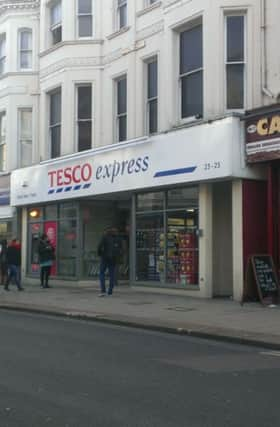Supermarkets key to funding council coffers


The retail giant will contribute £1.49million of business rates in the coming financial year – the highest in the town.
The news it will not close any local stores as part of nationwide cost-cutting measures will therefore come as a relief to Worthing Borough Council, which relies heavily on business rates to operate.
Advertisement
Hide AdAdvertisement
Hide AdBusiness rates expert Paul Turner-Mitchell, who compiled the statistics, said: “Retail and, in particular, the large-format superstores, are massive contributors to council coffers and effectively front-line services.
“In a world of changing consumer habits moving to convenience, and with the growth of the discounters like Aldi and Lidl, it is not impossible that one of the big four could disappear and certainly the big four’s portfolios of superstores is likely to decrease.
“This could, in turn, effect council budgets. It is imperative that councils work with retail rather than seeing it as a cash cow. “
Supermarkets feature prominently on the top ten list, including Sainsbury’s (£880,000), Morrisons (£680,000), and Waitrose (£340,000).
Advertisement
Hide AdAdvertisement
Hide AdAsda, in Ferring, is Arun District Council’s top payer, at £1.54million, continuing the supermarket theme, while Worthing Hospital features second on Worthing’s list, paying £1.15million.
An estimated £32million of rates will be collected by the council in the current financial year, compared to around £8million anticipated to be raised through council tax.
Just £2.6million of the business rates bill will be kept, however, with the majority paid to central Government.
Just under a fifth of the council’s overall income comes from the business tax.
Advertisement
Hide AdAdvertisement
Hide AdWorthing Borough Council leader Dan Humphreys said: “Looking ahead to 2020, the proportion of the council’s general income collected through business rates is likely to increase to around 23 per cent as our Revenue Support Grant halves over the same period.
“We will continue to adopt sound fiscal policies to deliver our ambitious agenda within budgetary restraints, and I anticipate that a strong local economy, translating into improving business rate collections, will provide welcome support to the council’s general income and help the authority deliver the things that matter most to our communities.”
For more reaction to the news, see the business pages on 70 and 71.